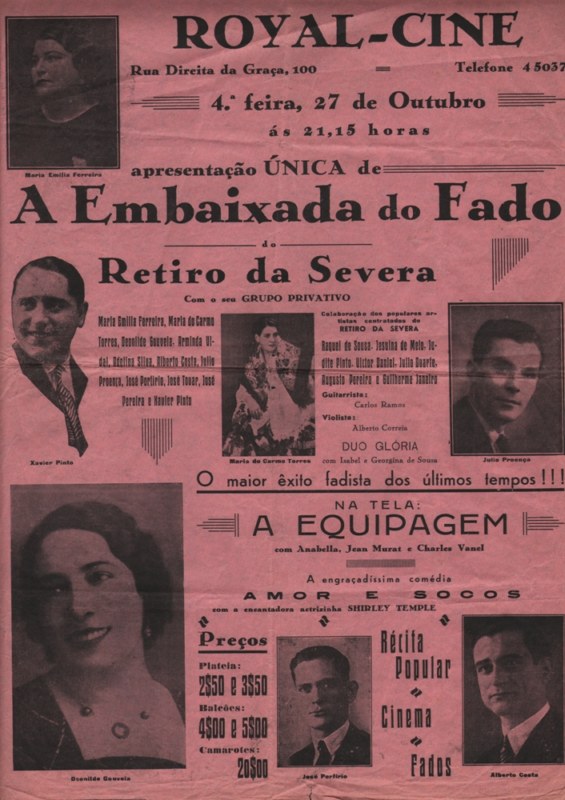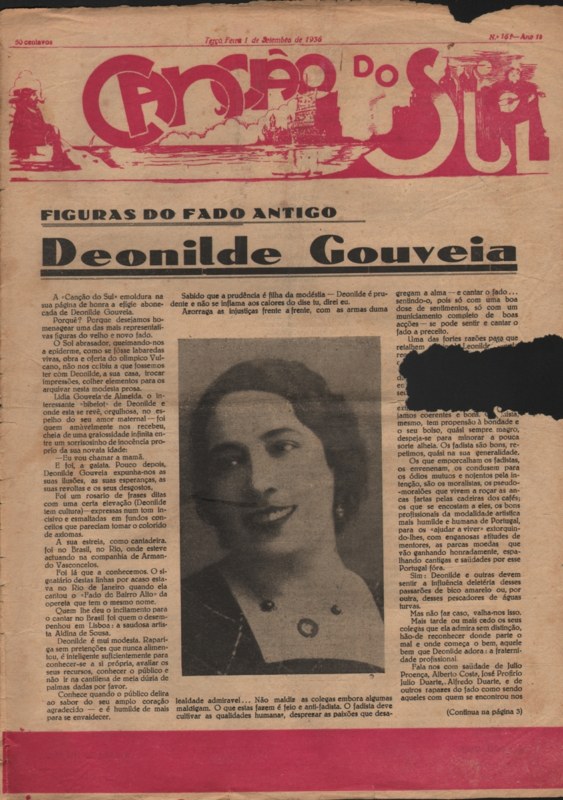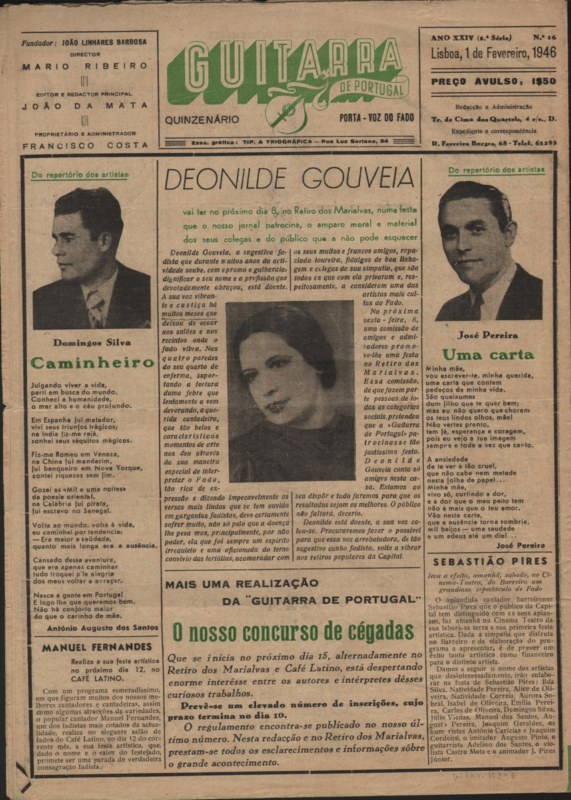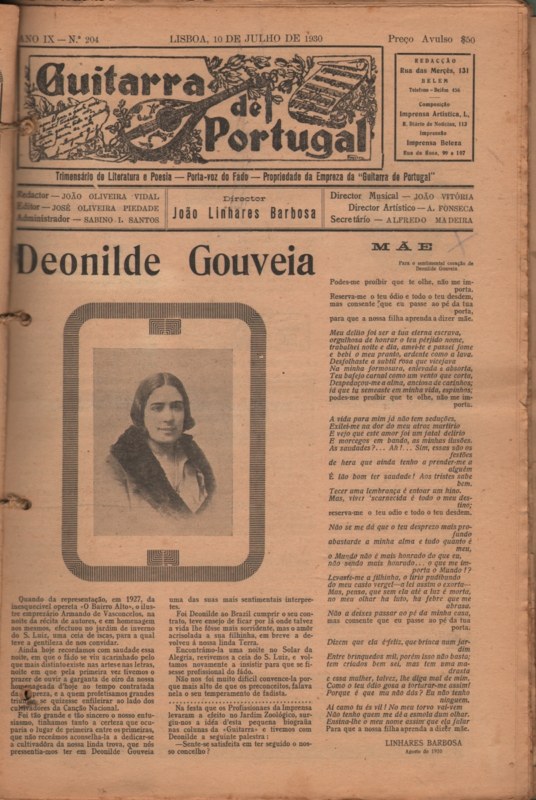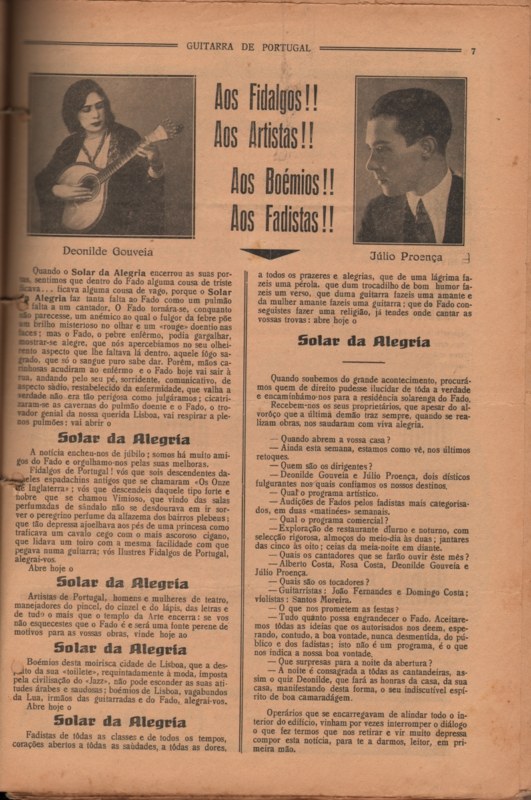Know more:
Deonilde Gouveia
(N. 1 January, 1900 - M. January, 1900)Deonilde Gouveia was born in Viana do Castelo and in the early years of the twentieth century she began his artistic career opting, in a first phase, for theater.
During this period, Deonilde worked in several Artistic Companies, namely the one belonging to Armando Vasconcelos, with whom she toured the entire national territory and almost all the States of Brazil, making her debut as a singer in the Teatro República, in Rio de Janeiro, in the operetta “Fado from Bairro Alto”. (cf. “Canção do Sul”, September 1, 1936)
Already back in Portugal, it will be in the 1930s that Deonilde will see a greater dynamic in her artistic journey and, after her debut at Solar da Alegria, the singer will say: “Being one of the newest singers, I happily sang from the North to the south of the country, because in addition to several individual contracts, I have with my dear colleagues Joaquim de Campos and Júlio Proença, taken part in many charity parties and there have already been a few dozen.” (cf. “Guitarra de Portugal”, 10 July 1930). Beneficence also includes performances in "verbenas", fado houses, tribute parties, theaters and private homes.
In a posture guided by discretion, professional pride and fairness, Deonilde Gouveia is not deceived by the praise that the press of the time directs to her: “… one of the first stars of our beautiful song, because the notes of fado, in her throat, come out full melody and feeling to which it combines an impeccable diction. (…) The fado singer who moves us to tears.” (c.f. “Guitarra de Portugal”, 10 July 1930).
Reflection of the esteem and admiration not only by the press but also by her colleagues, occurs in the Salão Artístico de Fados in October 1930, a party in honor of Deonilde Gouveia, where names like Armandinho, Ercília Costa, Berta Cardoso, Alberto Costa, Júlio Proença, Manuel Cascais, among others take part. (cf. “Guitarra de Portugal”, October 30, 1930)
In February 1931, the reopening of one of the most emblematic fado spaces is announced, Solar da Alegria, located in Praça da Alegria, which, under the direction of Deonilde Gouveia and Júlio Proença, opens doors with a new cast of artists composed by: Alberto Costa and Rosa Costa, joined by Deonilde Gouveia and Júlio Proença. The accompaniment is in charge of João Fernandes and Domingo Costa on the Portuguese guitar and Santos Moreira on the classic guitar. (cf. “Guitarra de Portugal”, February 6, 1931).
It is also in this period that the existence of different groups of artists is noted with the common purpose of performing shows and tours. Rui Vieira Nery identifies in addition to the “Troupe Guitarra de Portugal” and the “Grupo Artístico Canção Nacional”, the “Grupo Artístico Propaganda do Fado” integrated by Deonilde Gouveia, Júlio Proença and Joaquim Campos. (cf. Nery (2004): 212). In addition to these performances, Deonilde adds to her artistic journey, tours in Portugal and in Madeira Island, reported by newspapers of the time: "From Funchal, where she is fulfilling an artistic contract, our dear friend and singer Deonilde Gouveia writes to us ... ”(Cf.“ Guitarra de Portugal ”, April 12, 1934).
In 1936 she appears on the cover of “Canção do Sul” which highlights her as one of the most representative figures in the artistic world and for whom “Deonilde is a great singer. Sings fado and feels it with a soul of choice. She is an old fado singer and has a loyal audience ... ”(cf.“ Canção do Sul ”, September 1, 1936)
In addition to being an excellent interpreter, Deonilde Gouveia is also the author of themes in her repertoire, namely: “Portugal”, “Campinos” and “Tarde de Toiros”, among other records. (cf. Machado (1937): 81)
In 1946 Deonilde was the subject of a tribute at "Retiro dos Marialvas" and after painful suffering she died in August 1947.
Selected sources of information:
“Guitarra de Portugal”, 10 de Julho de 1930;
“Guitarra de Portugal”, 17 de Setembro de 1930;
“Guitarra de Portugal”, 6 de Fevereiro de 1931;
“Guitarra de Portugal”, 05 de Março de 1931;
“Canção do Sul”, 1 de Setembro de 1936;
“Guitarra de Portugal”; 01 de Fevereiro de 1946;
“Ecos de Portugal”, 01 de Setembro de 1947
Machado, A. Victor (1937), “Ídolos do Fado”, Lisboa, Tipografia Gonçalves
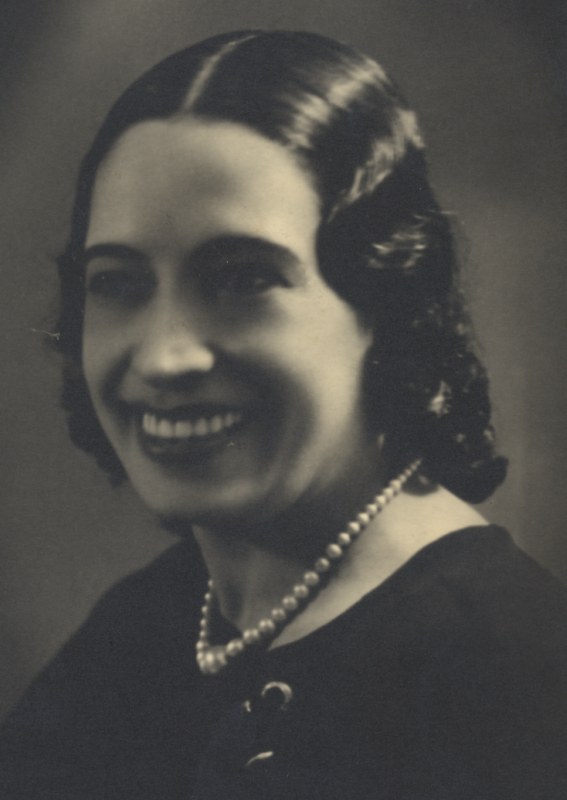
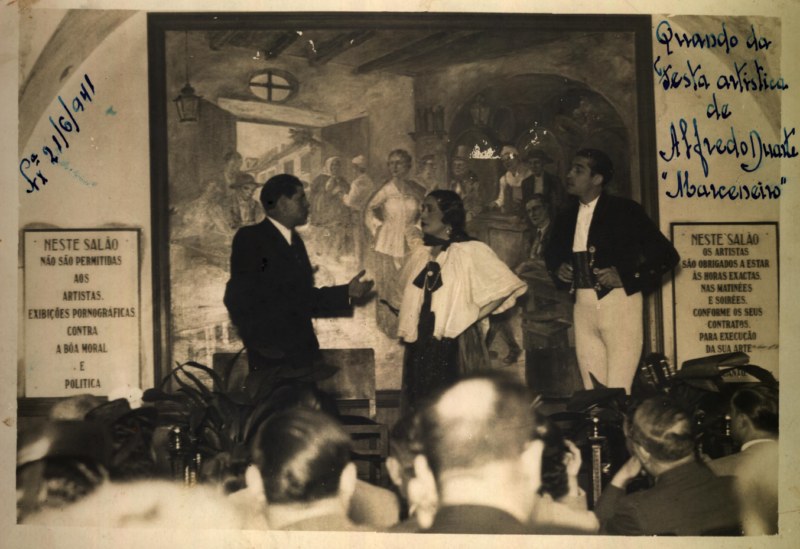
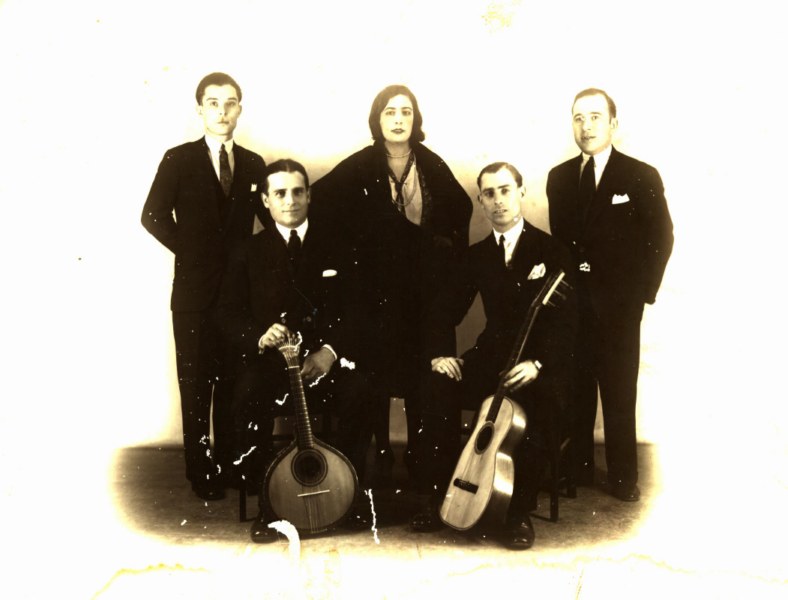
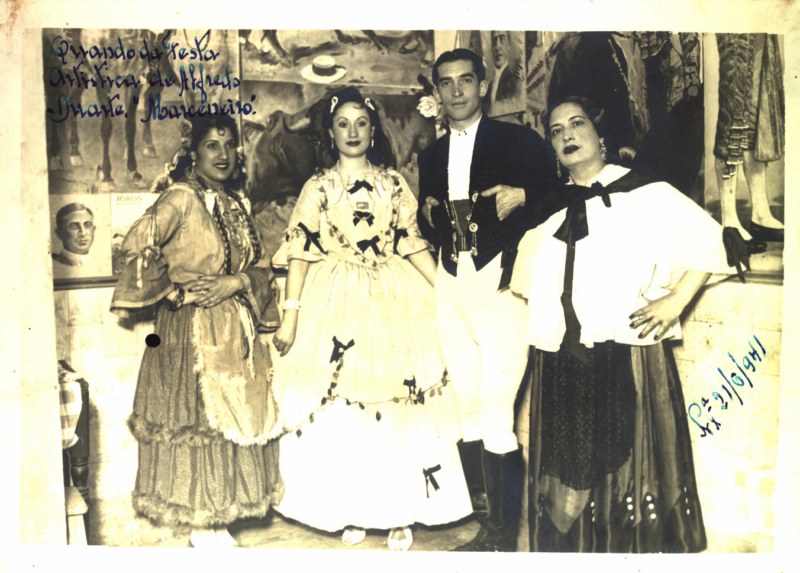
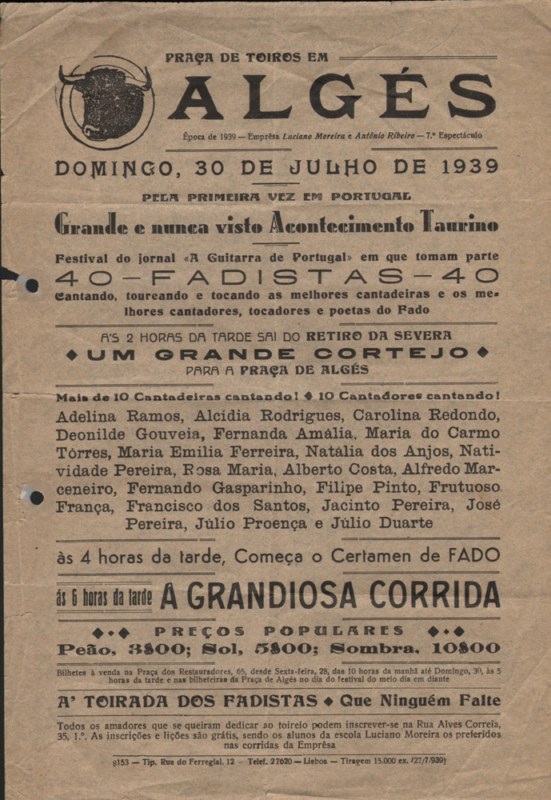
Praça de Toiros de Algés, 1939
